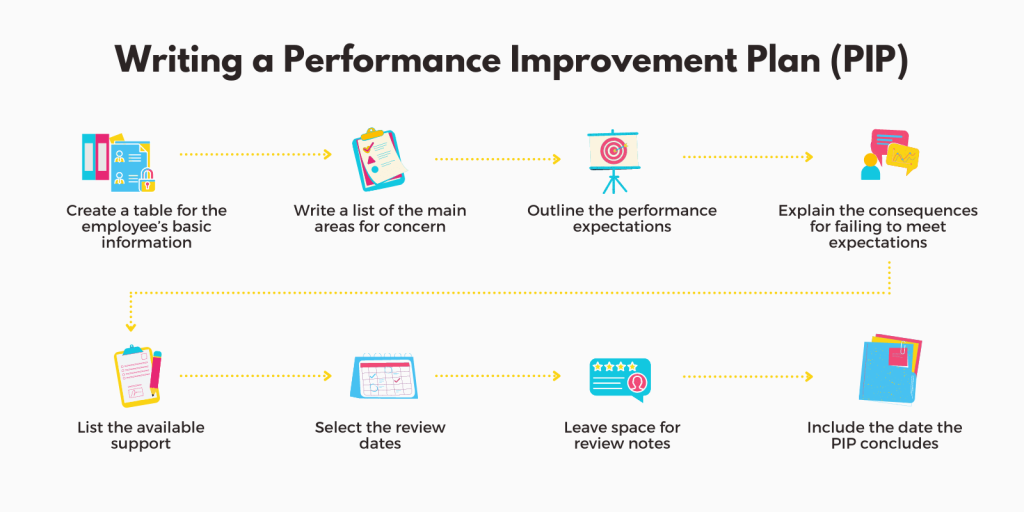Unlock Your Potential: The Ultimate Guide To Performance Improvement Plan In UK Law – Click Here To Transform Your Performance!
Performance Improvement Plan UK Law: A Comprehensive Guide
Introduction
Dear Readers,
2 Picture Gallery: Unlock Your Potential: The Ultimate Guide To Performance Improvement Plan In UK Law – Click Here To Transform Your Performance!
Welcome to our comprehensive guide on performance improvement plans (PIPs) under UK law. In this article, we will delve into the intricacies of PIPs, their purpose, and the legal framework surrounding them. Whether you are an employer, an employee, or a legal professional, this guide will provide you with valuable insights into navigating the world of PIPs.

Image Source: staffcircle.com
Now, let’s dive into the details of performance improvement plans and how they are governed by UK law.
What is a Performance Improvement Plan?
🔍 A performance improvement plan, commonly referred to as a PIP, is a structured process aimed at helping employees improve their performance when they are not meeting the required standards set by their employer.
📝 The PIP serves as a roadmap for both the employee and the employer, outlining the specific areas that need improvement, the expected performance targets, and the time frame in which these targets should be achieved.

Image Source: gcom.cloud
📍 It is important to note that a PIP is not the same as a disciplinary procedure. It is intended to be a supportive tool to assist employees in reaching their full potential.
🔑 PIPs are often used as a last resort before considering termination, providing employees with an opportunity to rectify their performance issues.
📋 The implementation of a PIP should be fair and reasonable, following the guidelines set by UK employment law.
💼 Employers have a legal obligation to handle PIPs in a fair and non-discriminatory manner, ensuring that employees are given a genuine chance to improve.
Who is Covered by Performance Improvement Plan UK Law?
🔍 Performance improvement plans in the UK apply to all employees, regardless of their level or position within the organization.
👥 Both part-time and full-time employees are entitled to the same rights and protections under UK employment law, including the right to be given reasonable opportunities to improve their performance through a PIP.
🔒 It is important to note that PIPs do not apply to employees during their probationary period, as employers already have the right to terminate their employment without a detailed performance improvement process.
📝 Additionally, PIPs may not be applicable in cases of gross misconduct or serious breaches of company policies, where immediate disciplinary action may be required.
🧑⚖️ Employers should consult the employment contract and relevant policies to ensure compliance with the legal requirements for implementing a PIP.
💼 If you are unsure about whether you are covered by a PIP or have any concerns about your employment rights, seek legal advice from a qualified professional.
When Should a Performance Improvement Plan be Implemented?
🔍 Performance improvement plans should be implemented when an employee’s performance consistently falls below the expected standards and other forms of support, such as coaching or training, have failed to yield the desired improvements.
⏰ Employers should provide employees with reasonable timeframes to improve their performance, taking into consideration the complexity of the tasks and the level of support required.
📝 It is crucial for employers to document the performance issues and the steps taken to address them before resorting to a PIP. This documentation will serve as evidence of a fair and reasonable process.
🔒 Employers should also consider any personal circumstances that may be impacting an employee’s performance and make necessary adjustments or accommodations where appropriate.
📋 It is advisable for employers to seek legal advice before implementing a PIP to ensure compliance with the relevant employment laws and regulations.
📅 Once a decision has been made to implement a PIP, employers should communicate the plan to the employee in a clear and supportive manner.
Where does Performance Improvement Plan UK Law Apply?
🔍 Performance improvement plans in the UK apply to all industries and sectors, as long as the employees are covered by UK employment law.
🌍 Whether you work in the private or public sector, the legal requirements for implementing a PIP remain the same.
📋 Various laws and regulations, such as the Equality Act 2010 and the Employment Rights Act 1996, govern the implementation and management of PIPs, ensuring fairness and non-discrimination.
💼 Employers should familiarize themselves with the specific legal requirements applicable to their industry and seek legal advice if necessary.
Why Should Employers Implement Performance Improvement Plans?
🔍 There are several reasons why employers should consider implementing performance improvement plans:
1️⃣ Providing employees with an opportunity to improve their performance and reach their full potential.
2️⃣ Demonstrating a commitment to fairness and transparency in managing employee performance.
3️⃣ Clarifying expectations and goals to ensure alignment between the employer and the employee.
4️⃣ Documenting the performance issues and the steps taken to address them, which can be crucial in defending against potential legal claims.
5️⃣ Encouraging open communication and dialogue between employers and employees, fostering a positive work environment.
📋 However, employers must ensure that the implementation of a PIP is carried out in a fair and non-discriminatory manner, in accordance with UK employment law.
How to Implement a Performance Improvement Plan?
🔍 Implementing a performance improvement plan involves several key steps:
1️⃣ Identify the performance issues and the specific areas that need improvement.
2️⃣ Set clear performance targets and benchmarks that the employee should strive to achieve.
3️⃣ Determine the timeline and frequency of performance reviews to assess progress.
4️⃣ Provide necessary support and resources to help the employee improve their performance.
5️⃣ Monitor and document the employee’s progress throughout the duration of the PIP.
6️⃣ Offer guidance and constructive feedback to facilitate the employee’s development.
7️⃣ Regularly communicate with the employee to address any concerns or challenges they may be facing.
📋 It is crucial for employers to maintain open lines of communication, treat the employee with respect and dignity, and provide adequate opportunities for improvement.
Advantages and Disadvantages of Performance Improvement Plans
🔍 Performance improvement plans have both advantages and disadvantages for employers and employees. Let’s explore these in detail:
Advantages:
1️⃣ Provides employees with a structured roadmap for improving their performance.
2️⃣ Allows employers to give employees a fair chance to rectify their performance issues.
3️⃣ Facilitates open communication and dialogue between employers and employees.
4️⃣ Encourages employee development and growth.
5️⃣ Demonstrates a commitment to fair and transparent performance management.
Disadvantages:
1️⃣ Can create additional stress and pressure for employees.
2️⃣ May damage employee morale and motivation.
3️⃣ Could be perceived as a precursor to termination, leading to a strained relationship between the employer and the employee.
4️⃣ Requires significant time and resources to implement and monitor.
5️⃣ Does not guarantee improved performance, as some employees may not respond positively to the PIP.
Frequently Asked Questions (FAQs)
1. Can an employer terminate an employee during a performance improvement plan?
🔎 No, the purpose of a performance improvement plan is to give the employee an opportunity to improve their performance. However, if the employee fails to meet the set targets after the PIP, termination may be considered, provided it aligns with the legal requirements.
2. Are employers legally required to provide a performance improvement plan?
🔎 There is no legal obligation for employers to provide a PIP. However, it is considered best practice to offer employees a chance to improve before resorting to termination.
3. Can an employee refuse to participate in a performance improvement plan?
🔎 While employees cannot refuse to participate in a PIP, they may choose not to sign the plan. However, it is advisable for employees to engage in the process and seek legal advice if they have any concerns.
4. Can an employee appeal a performance improvement plan?
🔎 Employees have the right to appeal a performance improvement plan if they believe it has been implemented unfairly or without proper consideration of their circumstances. They should follow the grievance procedure outlined in their employment contract or the company’s policies.
5. Can a performance improvement plan be extended?
🔎 Yes, in certain circumstances, such as when an employee shows significant improvement but requires more time to reach the desired performance level, a PIP may be extended. The decision should be made in consultation with the employee and documented accordingly.
Conclusion
In conclusion, performance improvement plans play a crucial role in addressing and resolving performance issues in the workplace. By implementing a fair and supportive process, employers can help employees reach their full potential and contribute positively to the organization.
Remember, the key to a successful performance improvement plan lies in clear communication, realistic targets, and providing necessary support to employees. Employers should always seek legal advice to ensure compliance with the relevant employment laws and regulations.
Final Remarks
Disclaimer: The information provided in this article is for general guidance purposes only and does not constitute legal advice. For specific inquiries or concerns regarding performance improvement plans or any other legal matters, it is recommended to consult with a qualified legal professional.
This post topic: Android Apps
